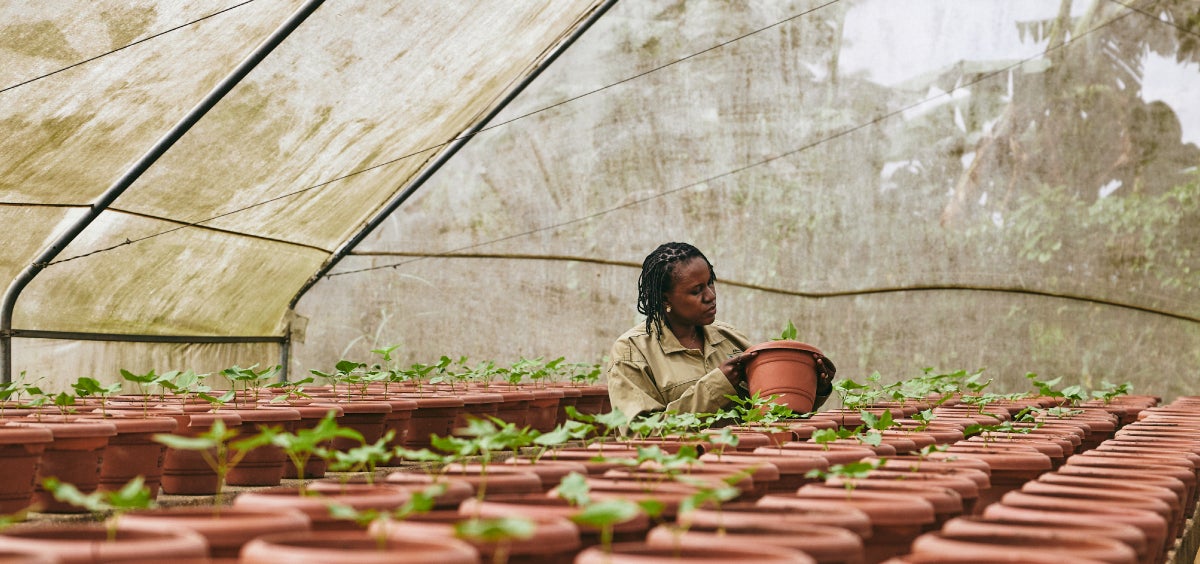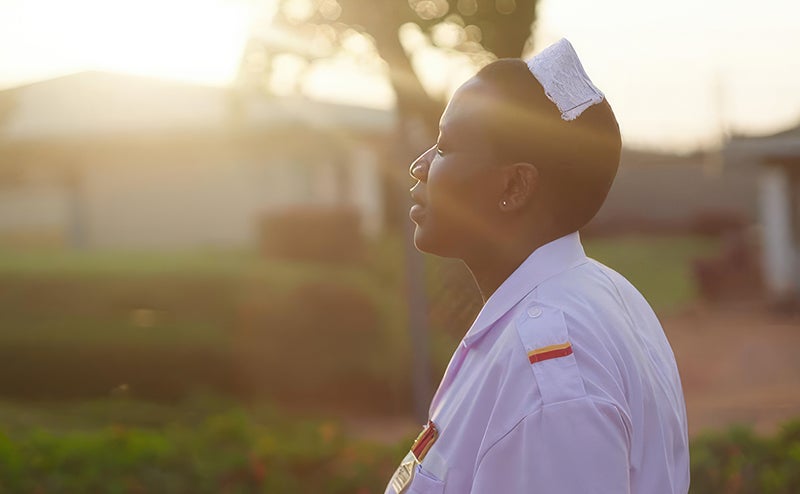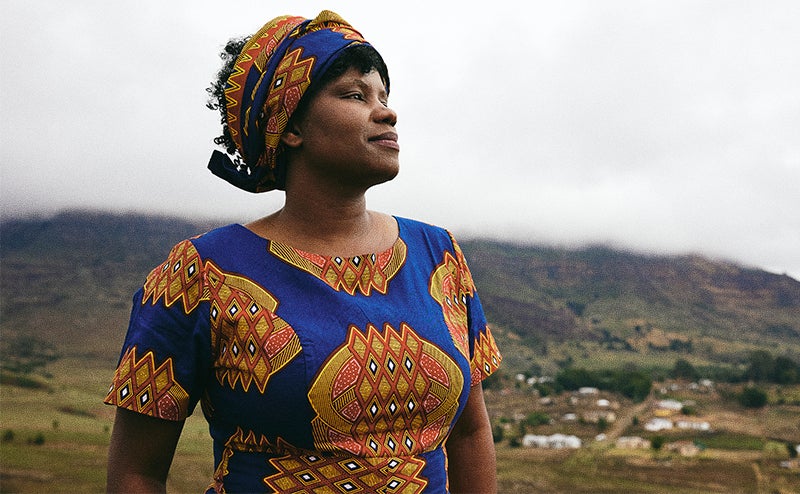The thing that always stood out to me most about Paul Farmer was his single-minded focus on helping people in the world’s poorest countries.
What’s your favorite way to eat beans? Mine is in chili. I know that’s a controversial opinion in some parts of the United States, but in my family, we grew up eating bean chili. It was such a delicious, filling meal that I still enjoy today.
I’m a big fan of beans, but my love for them can’t touch Clare Mukankusi’s. She has devoted her whole career to creating more reasons to eat and love legumes.
Clare is a bean breeder in Kampala, Uganda. She works at the Alliance of Bioversity International and the International Center for Tropical Agriculture (or CIAT, from its name in Spanish)—which is part of CGIAR—where she spends her days developing new plant varieties that are more nutritious and easier to grow.
Like many Ugandans, Clare’s family has roots in agriculture. She grew up in Kisoro, a small town in the highlands of Uganda, where climbing beans are a major crop. Both her grandparents and her great-grandparents were farmers there, and Clare was proud to follow in their footsteps. She studied agriculture at Makerere University and later earned her Ph.D. in plant breeding from the University of Kwazulu-Natal before joining CIAT.
When it came time to choose a research focus, Clare didn’t hesitate. “At my home, beans are eaten on a daily basis,” she says. “And in most Ugandan homes, beans are on the table almost daily. They’re a major food in hospitals and schools.” The reasons why are clear: Beans are tasty and cheap. Plus, they’re a natural source of protein, carbohydrates, and other important nutrients.
But beans aren’t without their drawbacks. The varieties grown in Uganda can require as long as three hours of cooking time, and the cost of fuel is very high. Most people, including Clare, use charcoal and firewood to cook them, even if they have electricity at home. It’s just too expensive to use an electric burner for that long. But cooking with wood creates a lot of smoke, which causes health issues.
That’s where Clare’s work comes in. By using traditional crossbreeding techniques to create new varieties with desirable traits, she’s making beans easier to cook and more nutritious while still tasting delicious. For example, Clare is currently working on a variety that is ready to eat in as little as 40 minutes. It also has 15 percent more iron and 10 percent more zinc than a normal bean. Malnutrition and anemia remain big problems in Uganda, especially for children, and I am excited about how a crop like this could help kids stay healthy.
But Clare’s work isn’t only targeted at people who eat beans. She also wants to help those who grow and sell them. She is constantly thinking about the growing conditions farmers face, what types of soil they’re planting in, and even what kind of market they’re targeting. No one is going to buy a bean if it tastes weird or looks unappetizing. Clare has to stay up-to-date on what kind of products are most appealing in the places where her plants are grown.
The farmers she works with are worried about climate change, which is creating more extreme growing conditions and changing the types of pathogens they see in the field. “When it’s going to rain is no longer as predictable as it used to be,” she says. “It’s a challenge to keep up with the climate, pests, and disease. We need to be on the lookout for all of this to ensure that beans are able to survive even under different climates.”
This is a problem that farmers around the world are trying to adapt to, and Clare is working closely with bean breeders across Africa to make more climate-resilient beans. She’s a key leader in the Pan-Africa Bean Research Alliance, a consortium of 31 national research programs that facilitates information sharing and collaboration. Right now, Clare and her colleagues are focused on breeding qualities that make for better drought tolerance, like deeper roots that are resistant to root rot.
“Plant breeding is a really important science,” Clare says, “because it actually looks at how we are going to have food in the future. What food are we going to be consuming? Will we have enough food? We keep abreast with the population and changes in the behavior of people to make sure that we are actually addressing the needs of food at that time.”
The next time you eat a bean, I hope you think about Clare Mukankusi. It’s no exaggeration to say that her love of legumes will benefit millions of Ugandans. And her story is an inspiring reminder that even something as small as a bean can help people lead healthier, more fulfilling lives.




